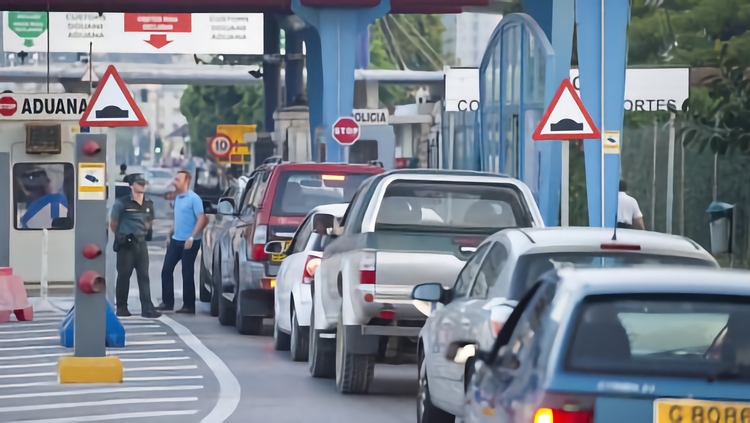Luis Ayllón
The Spanish government yesterday authorised the passage into Gibraltar of several packages, weighing some 150 kilos, from the United Kingdom, without examining their contents, The Diplomat has learnt from reliable sources.
The material had been held at the Fence for more than two weeks because the British authorities wanted to pass it off as a diplomatic bag, despite the fact that its final destination was not the Embassy or any other diplomatic mission of the United Kingdom in Spain, but the Governor’s palace on the Rock.
London claimed that sending the material overland through the Fence had been a mistake, and pressured Spain for days to authorise passage to Gibraltar. The Spanish Customs Service held the packages pending a decision by the Ministry of Foreign Affairs, which finally decided to let them pass, without granting them the status of diplomatic bag, but also without examining their contents.
The Diplomat contacted the Bureau of Diplomatic Information to confirm that the material had finally passed to Gibraltar, but did not receive a reply.
The arrival of the packages destined for Gibraltar by land caused surprise at the Customs Service, because London has the possibility of direct shipments to the Rock by air, thanks to the direct connections between the capital and the British colony.
In any case, experts on the Gibraltar dispute consulted by The Diplomat consider that the entry of the material through the fence could become a precedent that someone could invoke in the future. Gibraltar is a Schengen border and the passage of goods must conform to EU rules.
In November 2013, there was another incident at the Fence, when an alleged diplomatic pouch leaving the Rock for Spain was opened by the Guardia Civil. The UK lodged a formal protest, accusing Spain of not respecting the 1961 Vienna Convention on the confidentiality of diplomatic bags.
The then foreign minister, José Manuel García Margallo, rejected the protest, stating: ‘There is no incident, because it is not a diplomatic bag, according to the Vienna Convention’. Nevertheless, the British Secretary of State for Europe, David Lidington, assured that Spain had apologised for the opening of the “pouch”.
Article 27 of the Vienna Convention states that a diplomatic bag is a pouch used by the government of a country to communicate, for official purposes, with the missions or consulates of the state. This official correspondence of the diplomatic mission is inviolable, cannot be opened or retained, must be provided with external signs identifying it as such and “may contain only diplomatic documents and objects for official use”.
Neither in the 2013 case nor in the current case was it a diplomatic bag, as the origin or recipient was not diplomatic missions, but the British colony.







